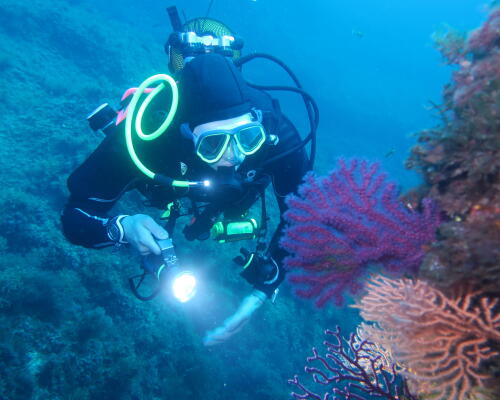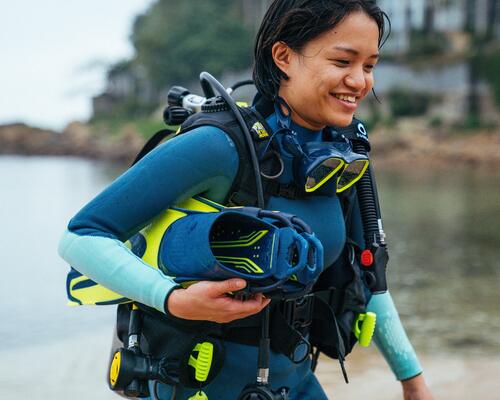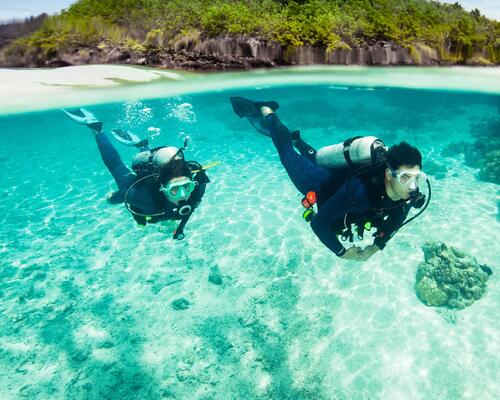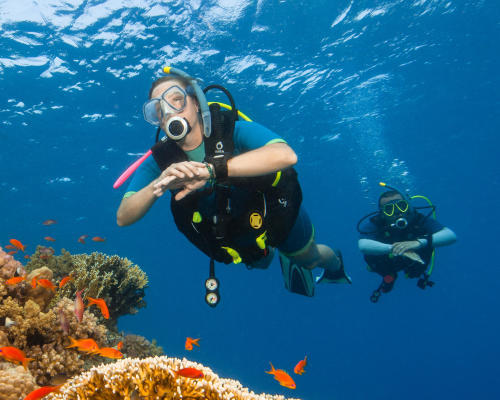Tips to recover after scuba diving #1: refrain from a flight or high-altitude locations
Flying and going to high-altitude locations after diving might be one of the most widely known risks for divers. As you know, nitrogen air from the gas tank dissolves in your blood after each deep dive and takes time to eliminate from your body. If you ascend quickly to high-altitude places, the air pressure lessens and the nitrogen will form into bubbles in between your tissues and joints, that can cause intense pain and possibly fatal!
To avoid this, the common practice is to wait 12 hours after a single no-decompression dive, and at least 24 hours after multiple dives before flying in a plane or going on high altitude hikes!






